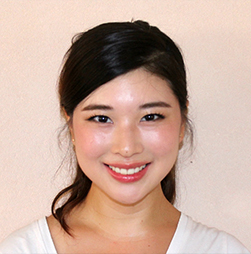
Gloria Hong, a 2011 Most Valuable Student scholar, is planning to continue her schooling at Duke University School of Medicine this fall. She studied chemistry during her undergraduate career at Harvard University, and plans to continue her academic pursuits in either Pediatric Oncology or Ophthalmology.
Numerous life experiences shaped Gloria into wanting to be the doctor she is on the path to becoming. From her mother’s never-ending compassion, to the highly HIV populated area in South Africa that she traveled to, she hopes to be the doctor that underprivileged individuals can look to for support one day.
Where Hong’s journey began is something that is worth recognizing, as it is a common story in many immigrant family’s lives. It began at an early age, as she immigrated to the United States, specifically the ghetto pocket of Los Angeles, with her family. Living in a single bedroom apartment, left only the closet for her and her sister to sleep in. This new start in America opened her eyes to the hardships that immigrants don’t only often have to face, but must learn how to overcome to survive. A journey faced with many hardships, there was one experience that left a lifelong mark that pushed Gloria to pursue a career in the medical field. One especially warm night, she woke up feverishly scratching at blisters on her upper back. Unsure of what it was, her parents contemplated what to do- seek help from their Korean neighbors they could communicate with, or take on the financial burdens and language barriers of a doctor's visit, her parents decided to take the former route and try to get the condition under control. After complications from home remedies and realizing medical attention was necessary, the condition was diagnosed as chicken pox, and was quickly taken care of.
Although she was cured, the physical and emotional scars of this common immigrant struggle were left on her upper back as a reminder of the lack of access to healthcare for certain populations in America. Gloria now reflects on this situation and understands why her parents were almost forced to take the route they did. “I wished that no other immigrant child should have to undergo what I did, especially with the cure so readily available,” shares Gloria.
She later decided to travel to a region in South Africa called KwaXimba while in college to witness how similar barriers affected a larger community. This area is ranked among one of the world’s highest HIV-afflicted areas, and many families survived on the grants that were provided by child support. Overall, the community was struggling, and this allowed Gloria to be opened up to an issue that is important, and certainly needs more recognition and assistance. She recalls one specific moment that assured her she was doing the right thing by becoming a doctor, which happened while she was hanging up pictures at a children’s camp. This was a camp that had a lot of children that needed assistance medically and emotionally, and a project had just been completed where the children drew self-portraits.
As she looked at the bottom of one of the pictures, it read “doctors give me hope.” Gloria shares, “in that moment, I could not imagine a bigger gift for anyone to give.”